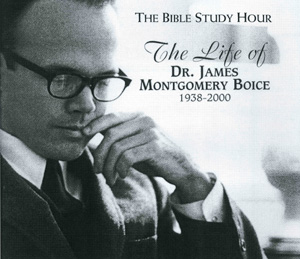 At the very heart of the controversy in the sixteenth century was the question of the ground by which God declares anyone righteous in His sight. The psalmist asked, “If you, O Lord, should mark iniquities, O Lord, who could stand?” (Ps. 130:3). In other words, if we have to stand before God and face His perfect justice and perfect judgment of our performance, none of us would be able to pass review. We all would fall, because as Paul reiterates, all of us have fallen short of the glory of God (Rom. 3:23). So, the pressing question of justification is how can an unjust person ever be justified in the presence of a righteous and holy God?
At the very heart of the controversy in the sixteenth century was the question of the ground by which God declares anyone righteous in His sight. The psalmist asked, “If you, O Lord, should mark iniquities, O Lord, who could stand?” (Ps. 130:3). In other words, if we have to stand before God and face His perfect justice and perfect judgment of our performance, none of us would be able to pass review. We all would fall, because as Paul reiterates, all of us have fallen short of the glory of God (Rom. 3:23). So, the pressing question of justification is how can an unjust person ever be justified in the presence of a righteous and holy God?
The Roman Catholic view is known as analytical justification. This means that God will declare a person just only when, under His perfect analysis, He finds that he is just, that righteousness is inherent in him. The person cannot have that righteousness without faith, without grace, and without the assistance of Christ. Nevertheless, in the final analysis, true righteousness must be present in the soul of a person before God will ever declare him just.
Whereas the Roman view is analytical, the Reformation view is that justification is synthetic. A synthetic statement is one in which something new is added in the predicate that is not contained in the subject. If I said to you, “The bachelor was a poor man,” I have told you something new in the second part of the sentence that was not already contained in the word bachelor. All bachelors are men by definition, but not all bachelors are poor men. There are many wealthy bachelors. Poverty and wealth are concepts that are not inherent in the idea of bachelorhood. So, when we say, “The bachelor was a poor man,” there is a synthesis, as it were.
When we say that the Reformation view of justification is synthetic, we mean that when God declares a person to be just in His sight, it is not because of what He finds in that person under His analysis. Rather, it is on the basis of something that is added to the person. That something that is added, of course, is the righteousness of Christ. This is why Luther said that the righteousness by which we are justified is extra nos, meaning “apart from us” or “outside of us.” He also called it an “alien righteousness,” not a righteousness that properly belongs to us, but a righteousness that is foreign to us, alien to us. It comes from outside the sphere of our own behavior. With both of these terms, Luther was speaking about the righteousness of Christ.
Excerpt adapted from R.C. Sproul’s latest book, Are We Together? Available now from ReformationTrust.com


 On March 14, 2013, Dr. John Piper wrote this ‘clarification’ has only brought further confusion.
On March 14, 2013, Dr. John Piper wrote this ‘clarification’ has only brought further confusion.
 At the very heart of the controversy in the sixteenth century was the question of the ground by which God declares anyone righteous in His sight. The psalmist asked, “If you, O Lord, should mark iniquities, O Lord, who could stand?” (Ps. 130:3). In other words, if we have to stand before God and face His perfect justice and perfect judgment of our performance, none of us would be able to pass review. We all would fall, because as Paul reiterates, all of us have fallen short of the glory of God (Rom. 3:23). So, the pressing question of justification is how can an unjust person ever be justified in the presence of a righteous and holy God?
At the very heart of the controversy in the sixteenth century was the question of the ground by which God declares anyone righteous in His sight. The psalmist asked, “If you, O Lord, should mark iniquities, O Lord, who could stand?” (Ps. 130:3). In other words, if we have to stand before God and face His perfect justice and perfect judgment of our performance, none of us would be able to pass review. We all would fall, because as Paul reiterates, all of us have fallen short of the glory of God (Rom. 3:23). So, the pressing question of justification is how can an unjust person ever be justified in the presence of a righteous and holy God?